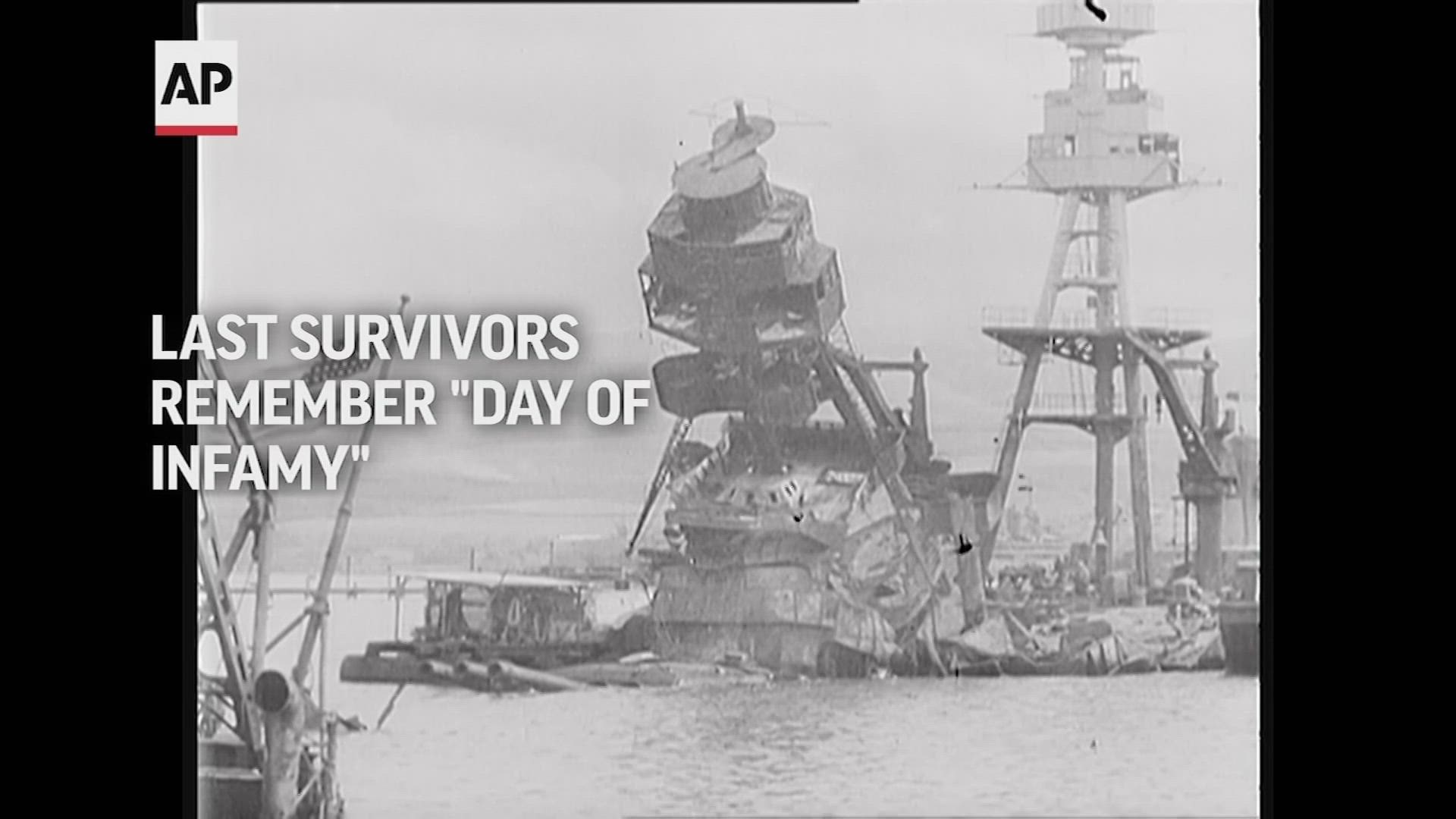Remembering Pearl Harbor: Admiral Husband E. Kimmel and the 'David versus Goliath story of the 21st Century'
As Americans commemorate the 81st anniversary of the attack on Pearl Harbor, the grandson of the Naval officer in command that morning seeks to correct an injustice.
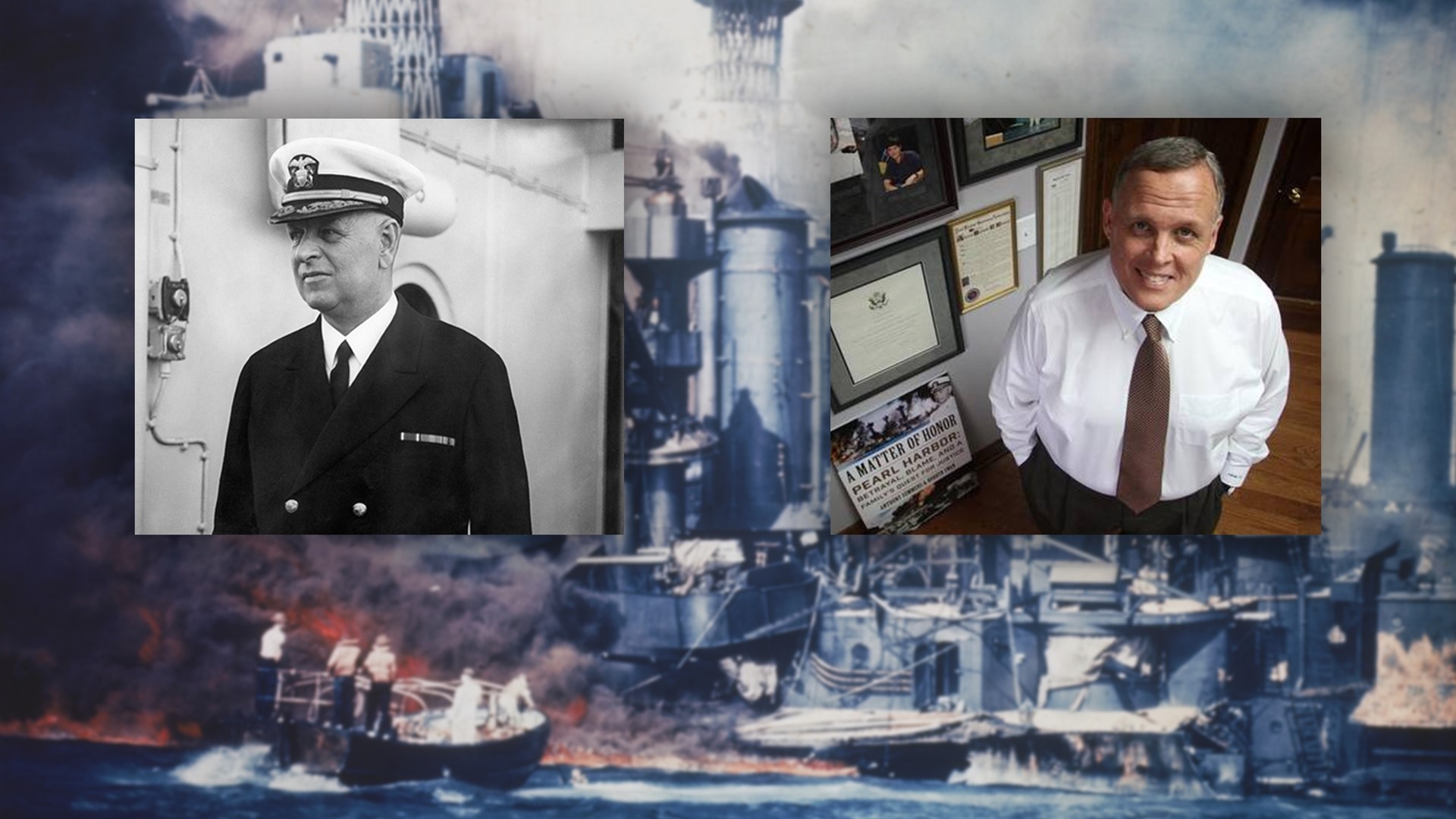
Wednesday marks the 81st anniversary of the "Day of Infamy." On Dec. 7, 1941, when the Japanese Empire attacked the United States Pacific Fleet at Pearl Harbor on the Hawaiian island of Oahu, bringing America into World War II.
Various commemorative ceremonies will be held throughout the nation on Dec. 7, including at the USS Cod Submarine Memorial in Cleveland. While we "Remember Pearl Harbor," one family is still seeking redemption for what happened to the man in charge of the U.S. Naval forces in the Pacific on that fateful morning.
Chapter 1 "A date which will live in infamy"
We first introduced you to Manning Kimmel in December of 2016. He is the grandson of Admiral Husband E. Kimmel, CINCPAC, or Commander-in-Chief Pacific Fleet, on Dec. 7, 1941. Manning and I spoke again on the eve of the 81st anniversary of the attack on Pearl Harbor. (You can watch the entire interview below.)
Husband E. Kimmel had an outstanding service record that led him to the command of not only the Pacific Fleet at Pearl Harbor, but the entire U.S. fleet, in 1941. A graduate of the U.S. Naval Academy, Kimmel had once worked as an aide to then-Assistant Secretary of the Navy Franklin D. Roosevelt prior to the First World War. During wartime, he served as a squadron gunnery officer. Once the fighting was over, he had various duties at sea, including commanding destroyer and cruiser divisions and as captain of the battleship USS New York. He also worked in the Navy Department.

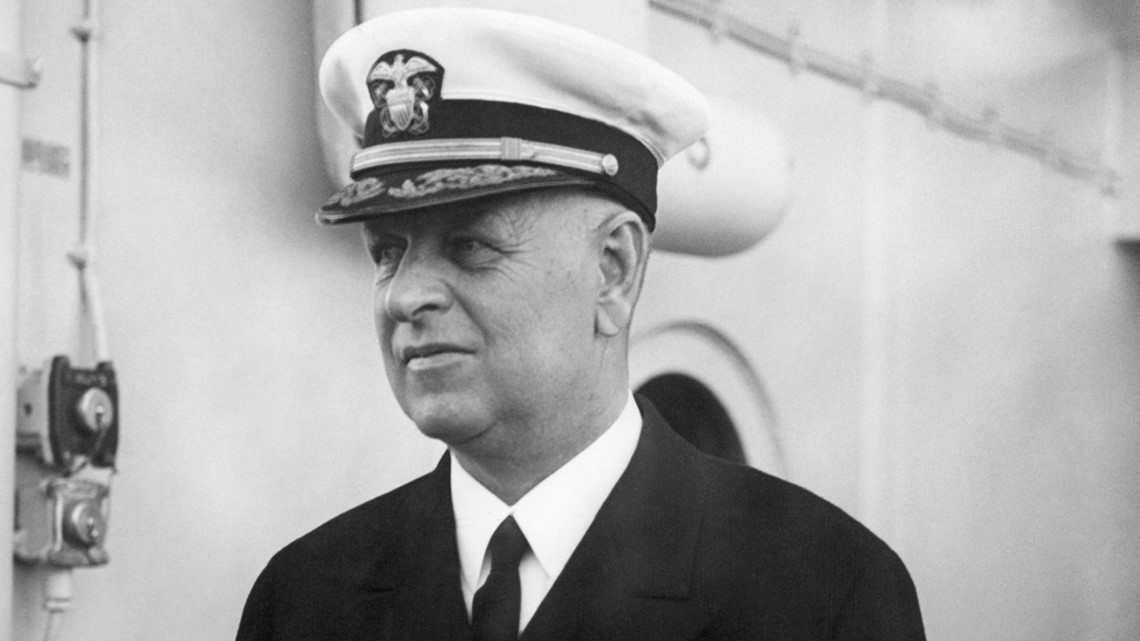
Kimmel was 59 years old in December of 1941.
Sadly for Adm. Kimmel, his exceptional military career was essentially brought to a close in the moment the first Japanese bomb was dropped and the first torpedo hit the water just before 8 a.m. that morning.
Eighteen of Kimmel's ships were either sunk or heavily damaged. The Pacific Fleet was essentially in ruins, with the exception of its aircraft carriers, which fortunately were not in the harbor that morning.

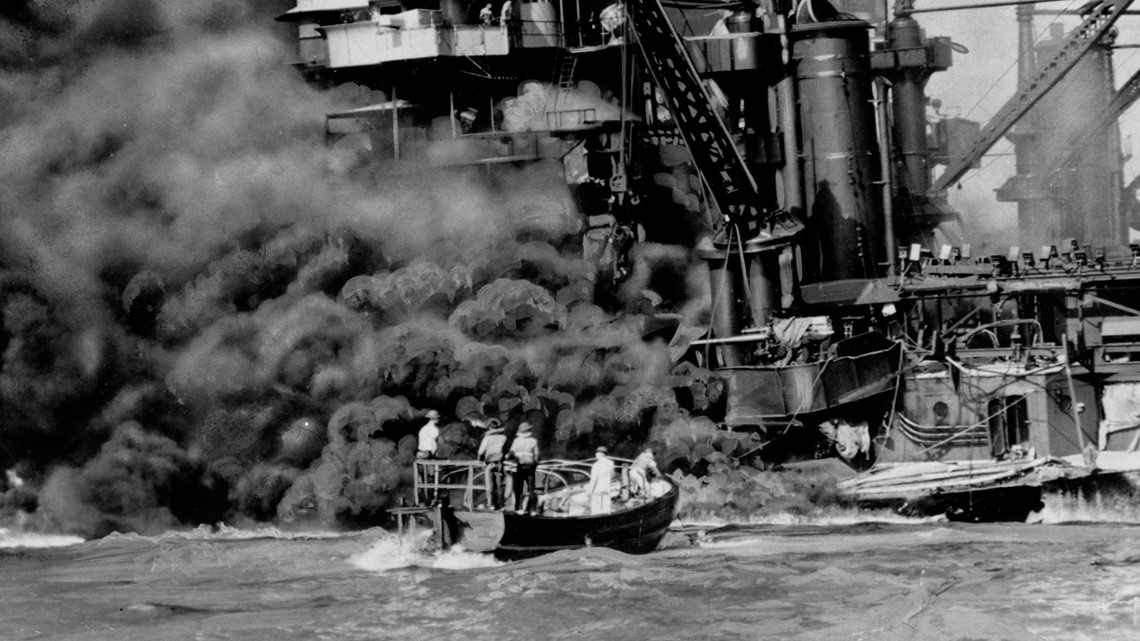
As the attack was progressing, Kimmel seemed to understand what was about to happen. A spent bullet from the exchange of fire crashed into the CINCPAC office and brushed into Kimmel. "It would have been merciful had it killed me," the admiral reportedly said.
Our armed forces were caught completely by surprise. Someone had to be blamed, so it was Kimmel and his Army counterpart in Hawaii, Lt. General Walter C. Short. Both were relieved of their respective commands just days after the attack.
From an outside perspective, it seems like a reasonable response to put the bulk of the responsibility for the 2,403 lives lost, the 1,178 wounded and destruction of the ships, planes and materials in the hands of the two commanding officers in Hawaii. Relations between the United States and Japan had been moving toward war for weeks. Kimmel and Short had both been notified that the Japanese could strike somewhere in the Pacific prior to Dec. 7.
And yet, both the Army and the Navy were not prepared for the attack.
In early 1942, Kimmel and Short were charged with dereliction of duty by the Roberts Commission, appointed by President Franklin D. Roosevelt. The duo were unceremoniously ushered into retirement and sat out the war on the sidelines.
But their days of fighting battles were not nearly over.
Chapter 2 "You are of no use to yourself or the American people"
The painful events at Pearl Harbor on Dec. 7 never left Husband E. Kimmel.
He received death threats, including a package in the mail that contained a loaded revolver and a note telling the admiral to shoot himself. The chairman of the House Military Affairs Committee essentially demanded that Kimmel and Short be executed.
A retired circuit court judge wrote Admiral Kimmel that "you are of no use to yourself or the American people" and that he should kill himself.
"Can you imagine living the rest of your life with the whole country, the country you have served your entire career for with an unblemished record — a record that got you to the position of Commander-in-Chief of the entire U.S. fleet, the highest position that the United States Navy can offer — can you imagine all of the sudden, that country says that you started the war? You're at fault?" Manning Kimmel told me in a recent interview.
Adm. Kimmel was retired by the Navy after the attack on Pearl Harbor, but as Manning explained to me, his grandfather could not live simply on his government pension. He needed to find work elsewhere, but couldn't escape the shadow of Dec. 7.
"He was an engineer by trade and went to work for a firm that had a sizable contract with the United States Navy to rebuild installations that were damaged during the war," Manning said of his grandfather. "The Navy saw his name on the list of firm employees, contacted my grandfather's boss and said, 'You either fire Kimmel, or we're going to pull the contract.'"
Kimmel eventually went out on his own and worked in the investment field, but questions from investigators about Pearl Harbor never stopped. He would be forced to defend himself in the face of eight other investigations.

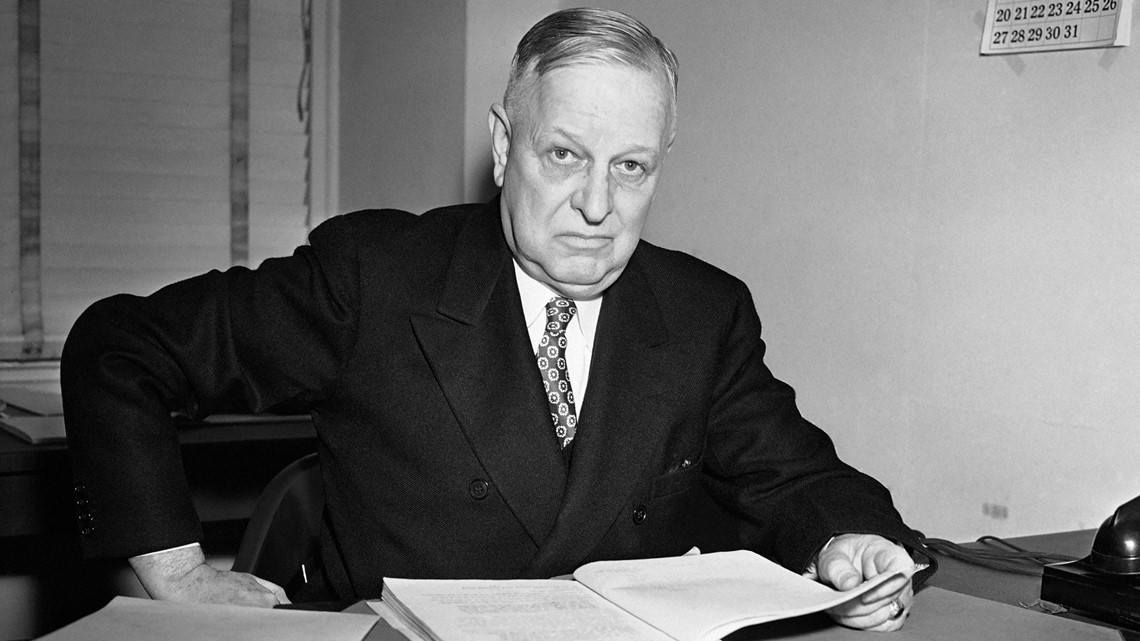
In 1946, a Joint Congressional Committee on the Investigation of the Pearl Harbor attack found that although the Hawaiian commanders had made errors in judgment, they were not derelict in their duty. A U.S. Navy Court of Inquiry had drawn a similar conclusion.
For a moment, it seemed that the reputations of Kimmel and Short were redeemable, but in 1947, everything changed.
The Officer Personnel Act was approved, allowing that any officer of the Armed Forces who served as a senior commander during World War II could have his retirement rank reflect the highest grade held when on active duty. The higher the grade translates to higher quality benefits for the officer and his or her family, including pay and medical care.
On Dec. 7, 1941, Kimmel was a four-star admiral, Short was a three-star general. Once they were swept out of the Armed Forces, Kimmel was pushed back to Rear Admiral (two stars) and Short was knocked down to Major General (also two stars).
When the Officer Personnel Act took effect, EVERY officer eligible had their ranks restored to their highest grade. Everyone except Husband Kimmel and Walter Short.
Chapter 3 “The final two victims of Pearl Harbor”
Since the end of World War II, the family of Admiral Kimmel has never stopped trying to redeem his reputation. Specifically, they want to see his rank returned to that of a four-star admiral.
The Kimmel family has used all of the "political clout we can muster," Manning Kimmel told me six years ago. At several points over the last few decades, it has appeared that there was some positive momentum in the family's quest.
As far back as 1990, the Pearl Harbor Survivors Association voted in favor of posthumously elevating Kimmel and Short's ranks back to where they were prior to the attack on Dec. 7, 1941.
A group of 36 admirals petitioned President George H.W. Bush a year later, asking for the rank restoration. Bush's military assistant wrote Kimmel's sons that to do so "would do no honor to the Admiral and might very well tear the tapestry that time and history have so thoughtfully woven."
In 1995, the Pentagon's Dorn Report made several points which seemed to help the cause of Kimmel and Short. For the first time, there was an admission that key intelligence had been withheld from the Hawaiian commanders prior to the attack on Pearl Harbor. They also concluded that no individual or individuals should have held sole responsibility for the attack; the blame should have been broadly shared.
In 1999, the United States Senate passed a non-binding resolution exonerating Kimmel and Short. One of the sponsors was then-Delaware Sen. Joe Biden, and Sen. Strom Thurmond called Kimmel and Short "the final two victims of Pearl Harbor."

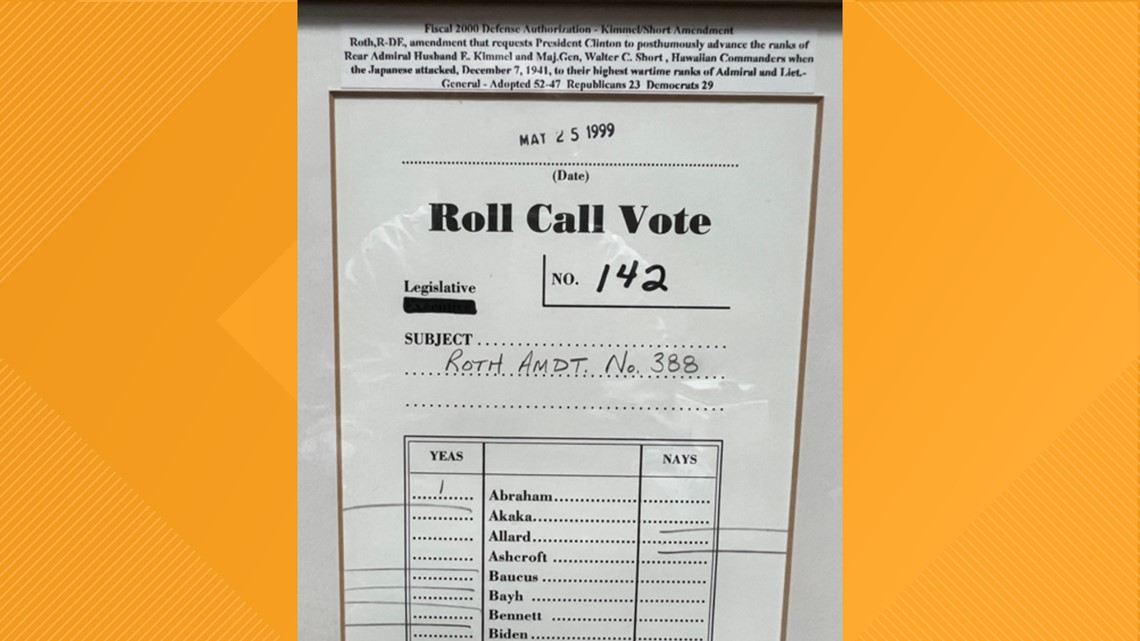
The resolution was attached to the National Defense Authorization Act, which was signed into law by President Bill Clinton in 2000. Yet nothing was done to address the resolution by Clinton, or by any of his successors.
Which brings us to the present day.
Chapter 4 "Honor is above life itself"
Manning Kimmel is a newsman. He currently serves as managing partner of radio stations WRHI-AM/FM, WRHM-FM and WVSZ-FM in Rock Hill, South Carolina.
"My home state is Delaware," Manning recalled. "My first job as a reporter was covering the New Castle County Council. Sitting on the New Castle County Council was a young fella by the name of Joe Biden."
In Kimmel's office at home, you can find several reminders of his grandfather, including the Nov. 18, 1941, edition of LOOK magazine with a cover featuring his grandfather standing on the deck of a battleship with the headline: "Admiral Kimmel: Commander of the U.S. Fleet." There's also the cover of TIME magazine from Dec. 15, 1941, with Kimmel pictured and the caption reading: "Admiral Kimmel, CINCUS. The enemy's first blow struck him."

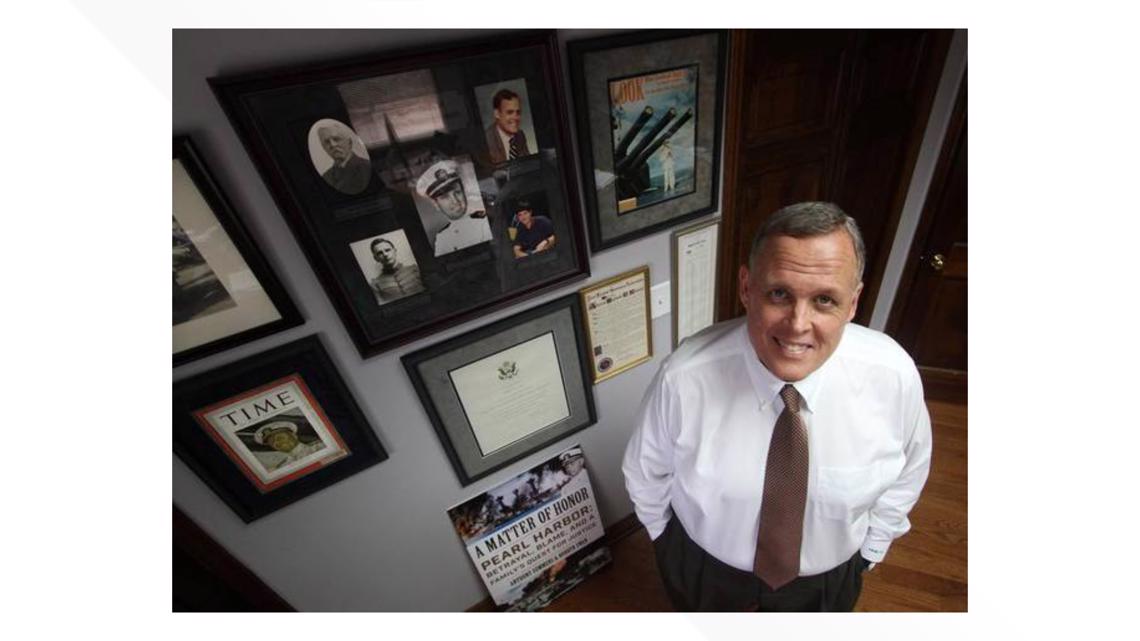
"Here we are, 81 years after the attack on Pearl Harbor," Manning told me in our conversation. "I am the grandson of Admiral Kimmel and I am really all by myself now carrying this torch."
He's alone in the quest to restore his grandfather's four-star rank because his cousin Tom passed away two years ago.
"Tommy and I worked side-by-side," Manning explained. "His strategy was to do research and find more historical evidence, my side was to take what we had in hand — which was plenty — and try to get those in power in Washington to correct this injustice."
Manning Kimmel did have the opportunity to talk to Joe Biden when the now-president was campaigning as vice president.
"I was able to get in front of him and say, 'Joe, I need your help in finishing what you helped me get started 25 years ago.' His comment was, 'I thought this was all over with.' Well, it's not over with."
With the coming of a new GOP-controlled House of Representatives in January, Manning is more concerned than ever about the question of his grandfather's honor being shoved aside due to political polarization.
"My grandfather is from Kentucky," he said. "You have two people there who have real pull in Sen. Mitch McConnell and Sen. Rand Paul. Those are guys who are heavyweights that can help out. The problem is, they're both Republicans. With this polarization right now, if you're a Republican, you can't talk to a Democrat."
Manning Kimmel says with President Biden in the White House, he has been working with Democrats, including Rep. Jim Clyburn, the current House Majority Whip. However, the other problem Kimmel has run into is the fact that every time he seems to get traction in his efforts, it gets pushed to the backburner due to an unexpected national or world event.
"Now it's Ukraine and the economy. This is a zero-priority in the world's priority list, but it ain't a zero priority to me. I want to get this thing fixed, and Joe Biden is the guy to fix it."
Why is it so important to Manning Kimmel to "get this thing fixed"?
"Before my DNA kicked in on this, I asked my Dad why it was so important," Manning explained. "With fire in his eyes and a finger pointed at my nose, he said, 'Young man, to a military man, honor is above life itself, and what they've done to your grandfather is to strip him of his honor.'"
Chapter 5 'David versus Goliath'
Recent historians have put forth evidence to back the Kimmel family's belief that both the admiral and General Short were wronged following Dec. 7.
In 2016, authors Robbyn Swan and Anthony Summers took up the case of Admiral Kimmel in their book, "A Matter of Honor: Pearl Harbor: Betrayal, Blame, and a Family's Quest for Justice."
The book reached several conclusions about Kimmel and Short. Swan and Summers believe that officers in Washington, not the commanders in Hawaii, should have borne the lion's share of the blame for the surprise at Pearl Harbor.
Throughout 1941, Navy headquarters had failed to meet Kimmel's repeated requests for more reconnaissance planes and crew, which might have made it possible to spot the Japanese strike force as it approached Hawaii.
The authors add that the Navy and War Departments had failed to pass along intelligence pointing to Pearl Harbor as a likely target — denying Kimmel key data that could have alerted him to Tokyo's plans. Hesitation and incompetence in the final hours before the attack — including by Adm. Harold Stark, the chief of naval operations — meant that a last-minute warning didn't reach Kimmel until eight hours after the attack began.
The Kimmel family gave their full cooperation to Swan and Summers. They also participated in the History Channel documentary, "Pearl Harbor: The Accused" that came out just prior to the 75th anniversary of the attack. Nothing changed.
"In this country, we're all about doing what is right," Manning Kimmel told me. "The evidence is clear about the bureaucratic bungling. I'm not talking about FDR (Franklin D. Roosevelt). The book makes it very clear there is no evidence linking FDR to any prior knowledge about the attack, and we've never gone down that road anyway. What we do have is concrete evidence about what Washington knew prior to the attack."
Just over eight hours after the Japanese attacked Pearl Harbor, they struck again at several U.S. bases in the Philippines. The U.S. commander, Gen. Douglas MacArthur, was promptly notified by Washington about what had happened in Hawaii and was warned about the likelihood of an attack there.

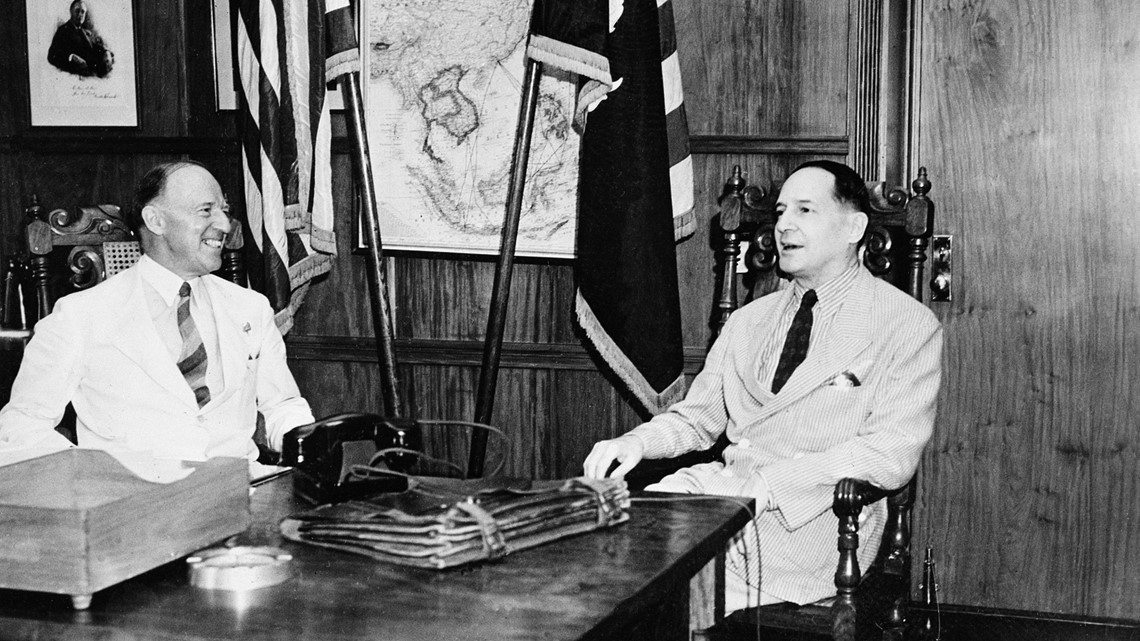
But when Japan's air forces moved in to attack, they found the U.S. Far East Air Force on the ground. In that first day of the Japanese attack on Dec. 8, half of MacArthur's air forces had been destroyed. American air power in the Western Pacific would essentially disappear by the following week.
Yet, nothing happened to Gen. MacArthur — no court martial, no congressional committees, no reduction in rank. In fact, MacArthur would rise in stature as a result of his inability to hold the Philippines. "I shall return," became his rallying cry as he was evacuated to Australia on his way to becoming a military legend.
The hypocrisy isn't lost on Manning Kimmel.
"MacArthur was bigger than life, politically," Manning added. "He had a lot of standing, but he had an eight-hour warning with direct orders to get that doggone Air Force off of those fields. He didn't do it. Adm. Kimmel is out there in the middle of the Pacific. He had no intel (intelligence). Nothing."
Think about an even more contemporary example. We all remember Sept. 11, 2001, and the terrorist attacks on the World Trade Center and the Pentagon. More than 2,600 people died in New York, 125 more at the Pentagon, and 256 died on the four hijacked planes. The death toll surpassed that of Pearl Harbor.
I went back and looked at the report of the 9/11 Commission. Blame for the attack was pointed in many directions, but mostly it was considered a failure of imagination, which I would argue is exactly what happened in Hawaii. American leaders never seriously believed that the Japanese could move more than 3,000 miles undetected with a huge task force and attack our forces in Hawaii, just as future U.S. leaders failed to understand the gravity of the threat from al Qaeda and that their brand of terrorism could be so devastatingly brought to our nation.
But unlike Pearl Harbor, no major U.S. government officials were disciplined. Nothing happened to the directors of the FBI or CIA. Secretary of Defense Donald Rumsfeld was not replaced, nor was National Security Advisor Condoleezza Rice. There was no dereliction of duty brought forth against any senior official.
So why can't we take a moment and give the families of Admiral Kimmel and General Short the peace that they so deserve?
As I write this, Congress is looking to promote Ulysses S. Grant to the rank of "General of the Armies of the United States of America." It's buried in a defense authorization bill. If passed, Grant would become only the third person to hold that rank besides George Washington and John J. "Black Jack" Pershing.
If lawmakers can address the rank of U.S. Grant more than 150 years after he commanded the Union Army in the Civil War, do you think it's too much to ask Congress and President Biden to give some honor back to the Kimmel and Short families by restoring their ranks?
I don't.
We are a forgiving people; that's one of the things that makes our nation so special. The Kimmel family is not asking for an apology, although you can argue they deserve one. They are not asking for back pay or additional benefits, although it's fair to say they are entitled. All they want is for honor to be restored to the family name.
In 2014, then-President Obama awarded a posthumous Medal of Honor to a Civil War veteran. In his speech, he reminded us that "no matter how long it takes, it's never too late to do the right thing."
Let's give the last word to Manning Kimmel: "My father used to say that the untold story of Pearl Harbor was that Husband Kimmel was able to maintain his sanity when the whole world had turned against him. He was a tough guy, and he never gave up. The least I can do is try to continue the work of my father.
"All I can do is get it to the president's desk. It's his decision one way or the other. After all these years, I haven't been able to do it. This is absolutely the 'David versus Goliath' story of the 21st Century."
Editor's Note: If you would like to help keep the conversation going with Congress and the White House, click here to contact the U.S. House of Representatives, click here to contact the U.S. Senate, and click here for the White House.


